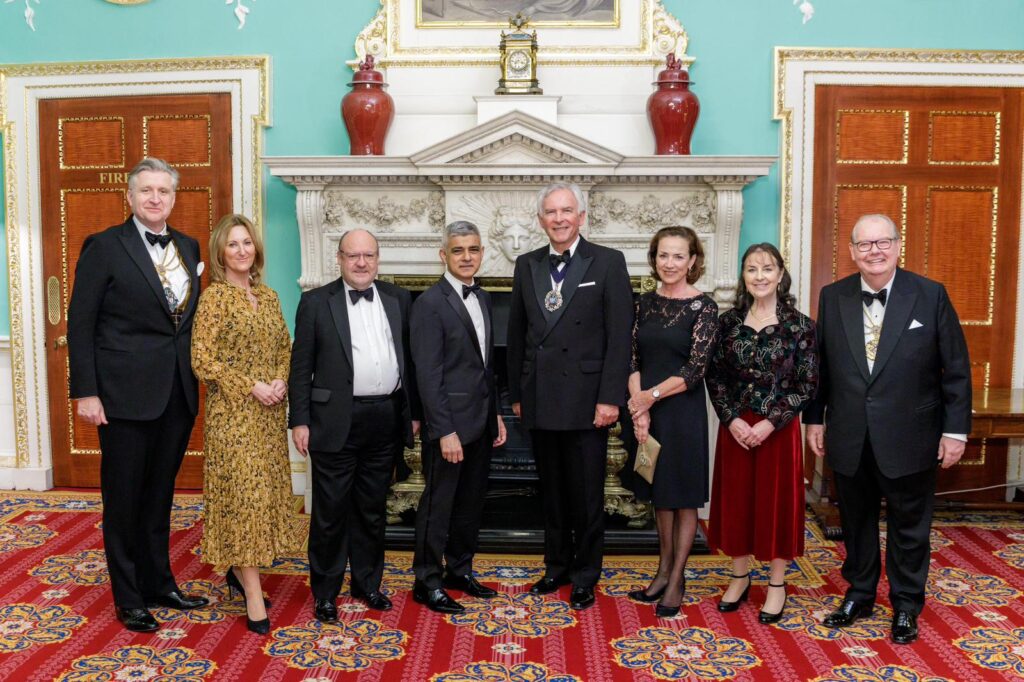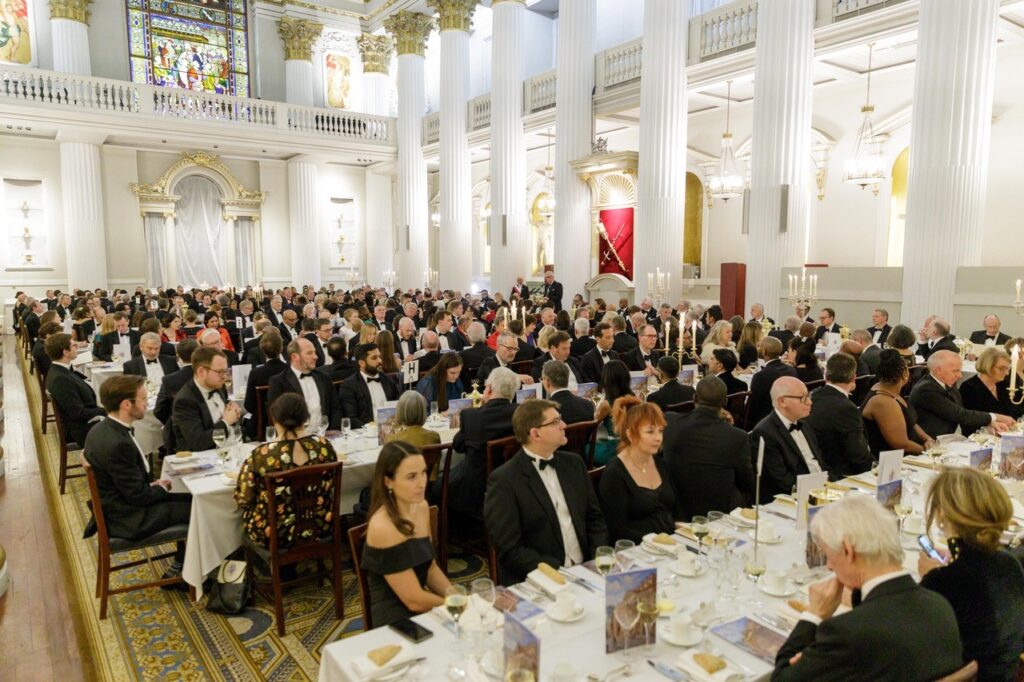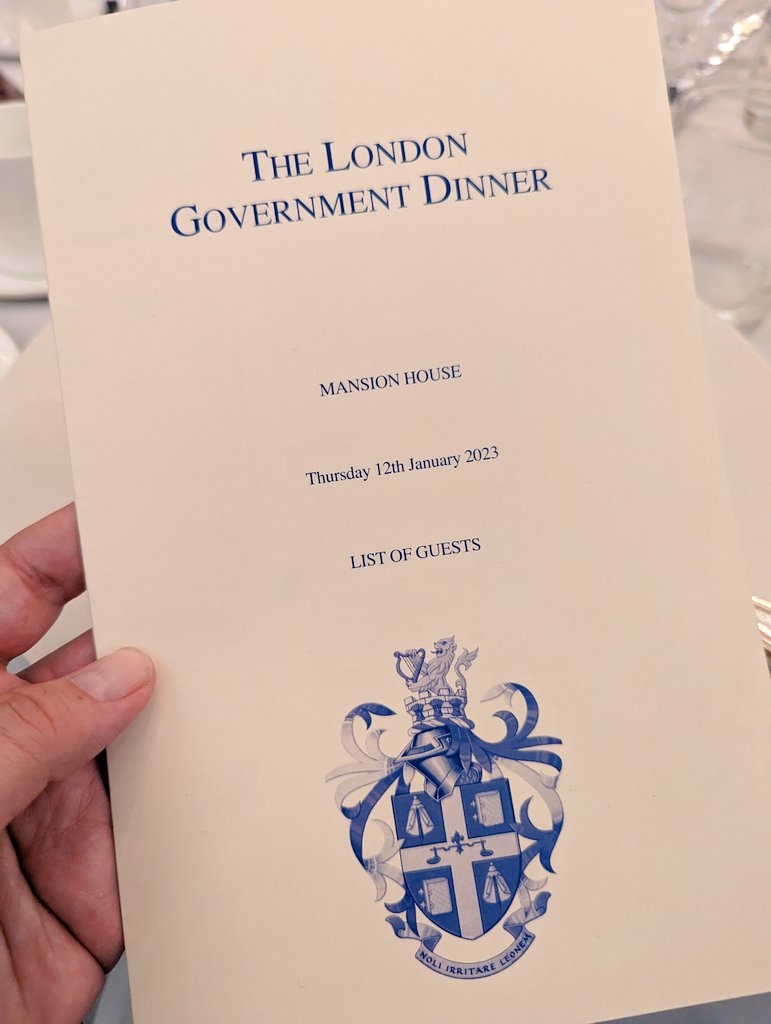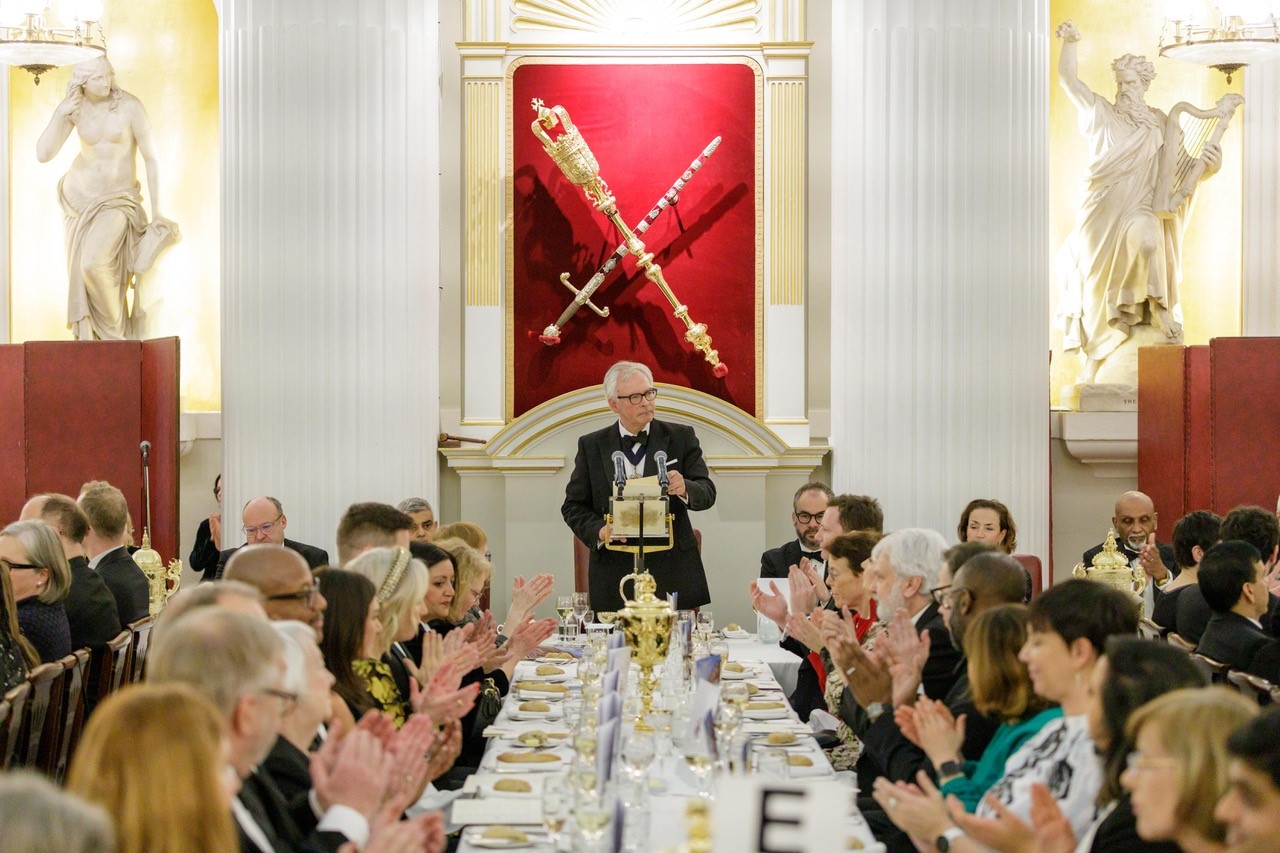At this evening’s London Government Dinner at the Mansion House, the 694th Lord Mayor of the City of London, Alderman Nicholas Lyons spoke about the impact of the government’s levelling-up agenda and the importance of London not being cast as a villain in our national story. The Mayor of the Greater London Authority, Sadiq Khan spoke about the impact Brexit has had on the capital city.
In an extract from the Lord Mayor’s statement, he said:
“For too long, London has been cast as the villain in our national story: sucking the life and wealth out of regions like an evil fairy godmother on a quest for eternal beauty. But the capital is one of the most unequal places in the country and London needs levelling up as much as anywhere else in the UK.
“At the same time, the capital also has a critical part to play in making that vision a reality. Home to a young, international population and leading financial and cultural institutions, London makes a huge contribution to the UK not just via the taxes it collects but also by the investment it attracts and the projects and industries it funds. For example, a Leeds company was contracted to prepare the city’s sewer networks for the new Elizabeth Line and its trains were built in Derby.
“With a strong London presence and fast-growing clusters across the UK, the financial and professional services sector I represent is a significant driver of jobs and prosperity. In the decade to 2020, all UK regions and nations saw the value of their FPS output grow by between 15 and 49%. And, today, two-thirds of the 2.3 million people who work in the UK FPS sector are based outside of London.
A strong Square Mile – and strong FPS sector – will only support levelling up across the UK. And as Lord Mayor, I will make sure the City delivers for our country, when it needs us most, through my theme, ‘Financing our Future’. Those of us working in London government must continue to speak out for what our capital needs, to ensure ‘levelling up’ doesn’t leave London behind and to create the conditions that will allow the City to drive investment and growth for the whole UK. If we get this right, we can create a stronger, fairer capital within a more prosperous, more equal UK.”
The Lord Mayor also discussed plans that the City of London Corporation submitted to Parliament late last year to relocate its historic Billingsgate and Smithfield markets to a purpose-built site in Dagenham Dock which will bring around 2,700 new jobs to East London.


The Mayor of London, Sadiq Khan, argued that a reformed relationship with Europe would significantly help to remedy the multitude of crises currently facing the capital and the country.
In his remarks, the Mayor of London stated:
“No one wants to see a return to the division and deadlock that dominated our body politic for five long years. However, the inescapable truth is that this unnecessarily hard-line version of Brexit is having a detrimental effect on our capital and country – at a time when we can least afford it. We can’t – in all good conscience – pretend that it isn’t hurting our people and harming our businesses. As Mayor of this great city, choosing not to say anything would be a dereliction of duty.”
The Mayor urged politicians to talk honestly and openly about Brexit so that the negative impacts can be addressed as much as possible:
“We’re gathered in one of the great financial districts in the world – supporting millions of jobs and generating billions in tax revenue – but the reality is that the City of London is being hit hard by the loss of trade and talent to our competitors because of Brexit. London cannot afford to fall behind any of our international competitors. I was elected on a pledge to stand up for all Londoners and for our business community. That’s why I simply can’t keep quiet about the immense damage Brexit is doing. Ministers seem to have developed selective amnesia when it comes to one of the root causes of our problems. Brexit can’t be airbrushed out of history or the consequences wished away. What I’m interested in is the future – doing what we all know is right for London and looking at how we can sensibly and maturely mitigate the damage that’s being inflicted.”
Sadiq acknowledged that both the capital and country face a multitude of challenges from the prospect of a recession and soaring inflation to our public services – especially our NHS – that are being pushed to breaking point. He set out how a closer relationship with Europe will help:
“Brexit has already reduced our GDP by 5.5 per cent, reduced investment by 11 per cent and reduced goods and services trade by 7 per cent. The hard and extreme Brexit we have is a drag on growth, investment, and trade. It’s holding Britain back. Fixing it would mean the recession would be less painful and less prolonged. All told, the estimated cost to the Treasury in lost tax revenues due to Brexit is £40bn. We simply cannot forgo £40 billion of potential investment in our health service. So, repairing our relationship with Europe would mean we can better support the NHS. Britons are also paying an extra £6 billion to eat because of Brexit. That’s £210 added to the average household’s supermarket bill over a two-year period.”
The Mayor believes the UK’s relationship with Europe can be fixed and is now calling for greater alignment with our European neighbours.
“After two years of denial and avoidance, we must now confront the hard truth: Brexit isn’t working. It’s weakened our economy, fractured our Union and diminished our reputation. But, crucially, not beyond repair. We need greater alignment with our European neighbours – a shift from this extreme, hard Brexit we have now to a workable version that serves our economy and people. That includes having a pragmatic debate about the benefits of being a part of the Customs Union and the Single Market.”
The Mayor also suggested that ministers can start mitigating the impact of Brexit by helping him to tackle London’s labour shortage.
“The number of businesses in our city experiencing at least one skills shortage has now risen to almost 7 in 10. Meanwhile, the number of jobs in our city held by EU-born workers has fallen by over 80,000 – putting huge strain on crucial sectors such as hospitality and construction. Devolving powers to London and allowing us to create a regional shortage occupation list would be one way to give businesses the ability to attract and retain talent in the areas they need it most.”
“Securing a better Brexit would mean more trade, higher investment and stronger growth. It would mean a boost to both exports and living standards. More and more Londoners are worried about the impact of Brexit on our city. Our business community is increasingly speaking out and in growing numbers. It’s time the government caught up. Europe was, is and will remain our most important relationship, but it’s in desperate and urgent need of repair. So, let 2023 be the year we summon up the political courage to rebuild those essential bridges and tear down those needless walls standing in the way of our businesses and our people.”

Photo credit: City of London Corporation and Richard Krakowski – Sharp Photography
